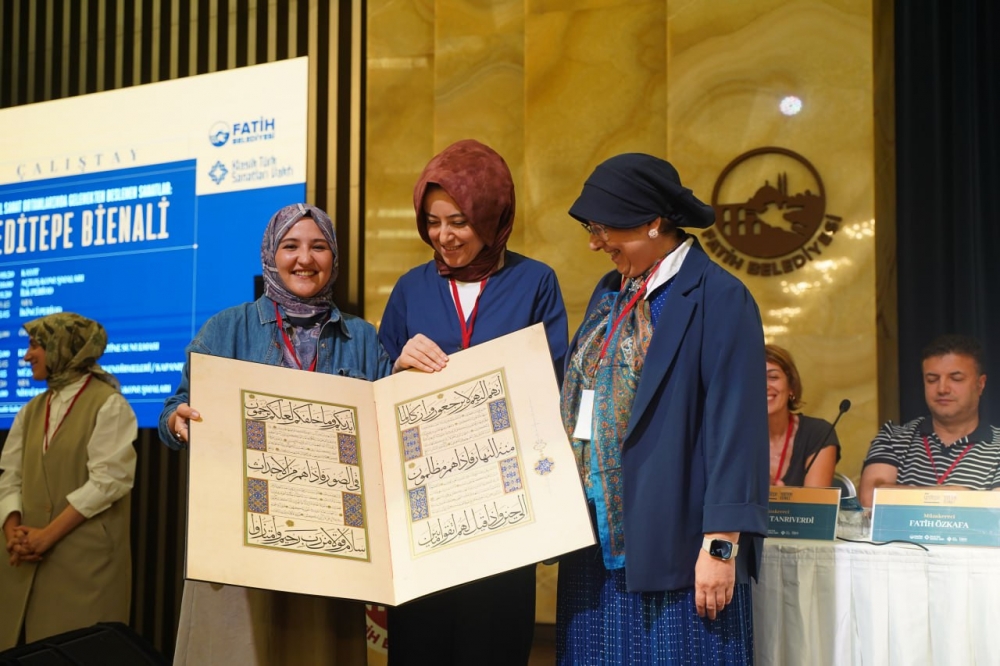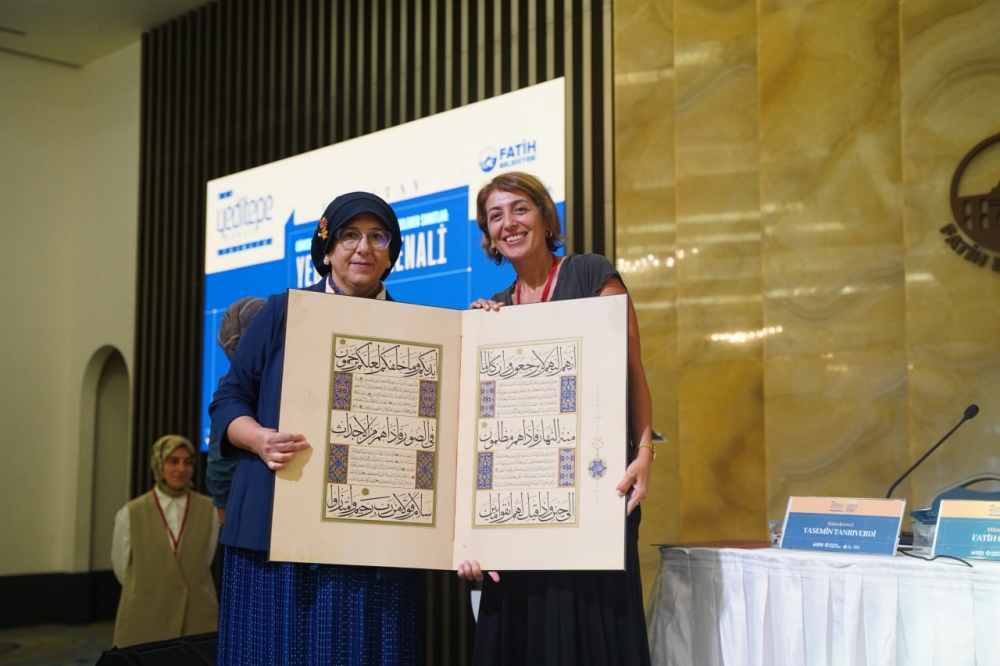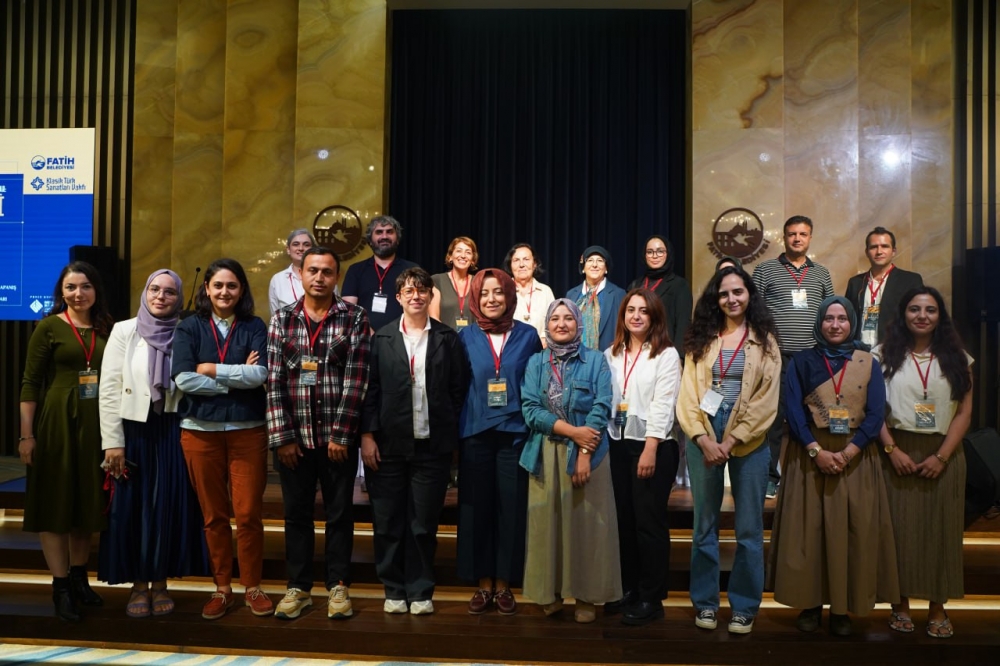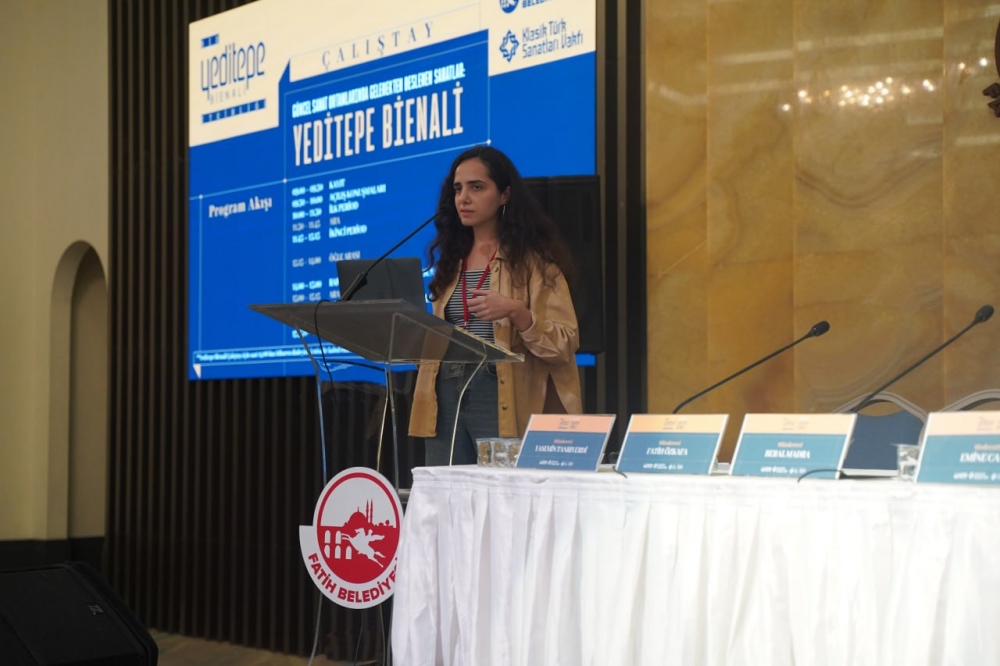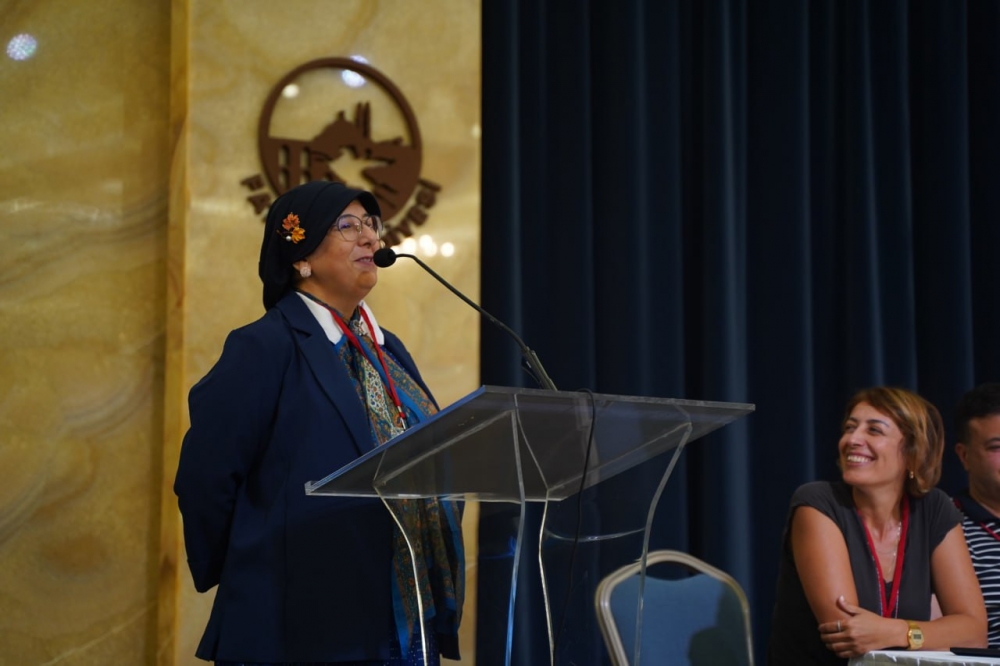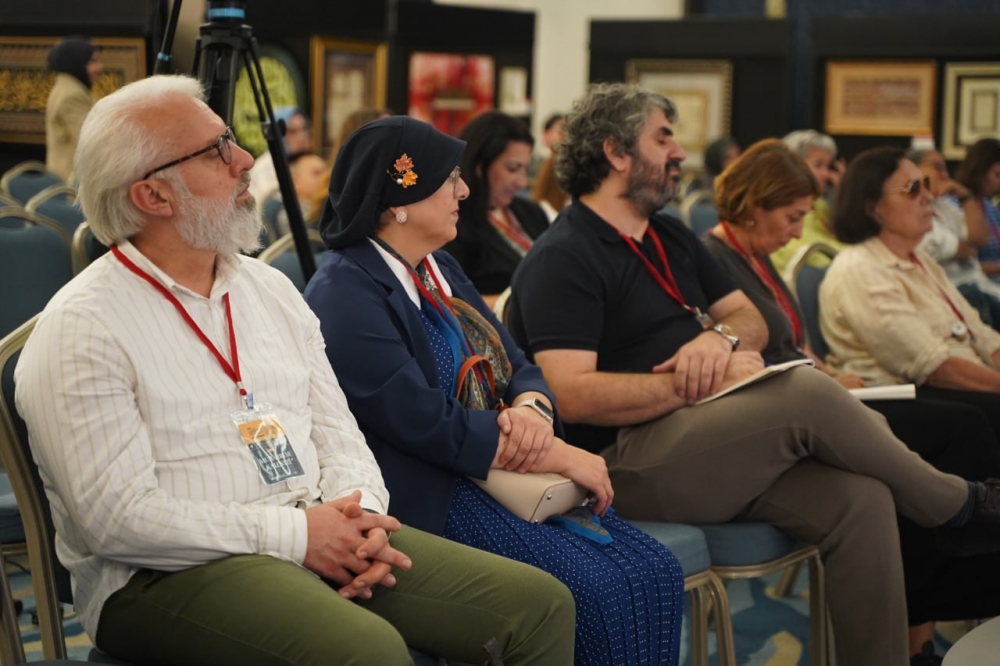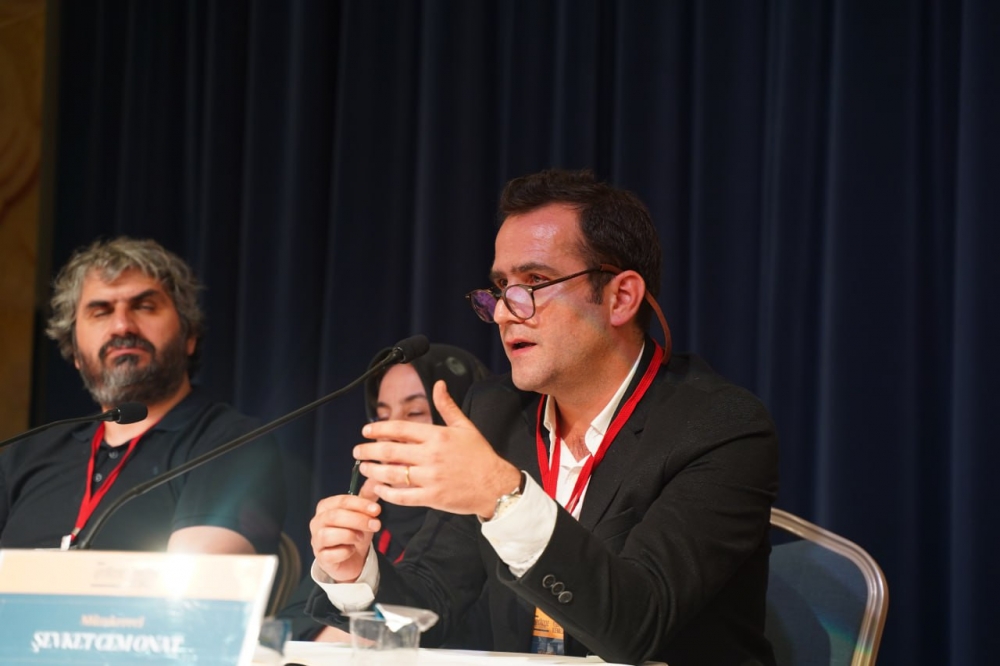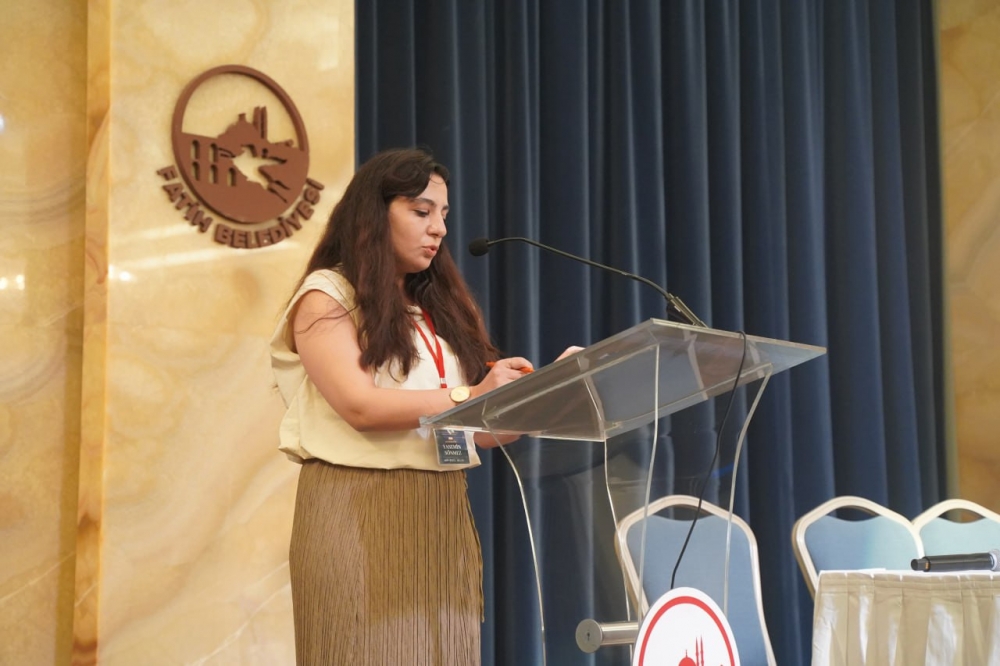The third workshop of the Yeditepe Biennial, which brings together Istanbul's deep-rooted art heritage with modern art, was organised at Neslişah Sultan Cultural Centre with the title ‘Arts Nourished by Tradition in Contemporary Art Environments’. Traditional and contemporary aspects of art were analysed in the workshop.
With its diverse cultures and rich historical heritage, Istanbul continues to host events that bring art together with the modern world. Yeditepe Biennial, one of these events, completed its workshop titled ‘Arts Nourished by Tradition in Contemporary Art Environments’ with a broad participation. The workshop held at Neslişah Sultan Cultural Centre revealed the biennial's determination to bring traditional arts together with contemporary art.
The workshop started with the opening speeches of prominent names of the art world. The relationship between Istanbul's historical and cultural depth and art biennials was discussed, and evaluations were made on the importance of traditional arts in the modern world. It was emphasised that Istanbul's ties with art biennials around the world should be strengthened.
In the first session, the relationship among artist-curator-venue was discussed in detail. The curators talked about the relationship between their artworks and venue and how they combine this with traditional art approaches. In addition, the historical contexts of the materials used by the artists in their works were emphasised. The contribution of biennials to the social and cultural identity of the work of art was a prominent view.
The second session analysed the interaction between the artwork, the artist, the patron and the audience. The discussions titled ‘Artwork, Artist, Patron, Audience in the Biennial Environment; The Problem of Identity and Belonging’ focused on the contribution of art to the process of identity formation. It was emphasised that a work of art is a tool that reflects the cultural identity of a community. This session addressed the question of how traditional arts can exist in the modern world. It was stated that the nourishment of art from its historical roots makes it more meaningful.
In the afternoon, the reports were presented to the Deliberation Committee and evaluations were made on the future of the biennial. The reports focused on the role of the biennial in the global art scene and the potential of Istanbul as an art centre.
The workshop ended with the evaluations of the Deliberation Committee and closing speeches. It was emphasised that making traditional arts more visible in biennials would strengthen the importance of biennials in the art world. It was stated that the Yeditepe Biennial will contribute to making Istanbul an important place in the international art scene.
This workshop provided a platform for important ideas on how traditional and contemporary arts can coexist. As a city where history and art meet, Istanbul's role in carrying art to the future has once again been revealed.





